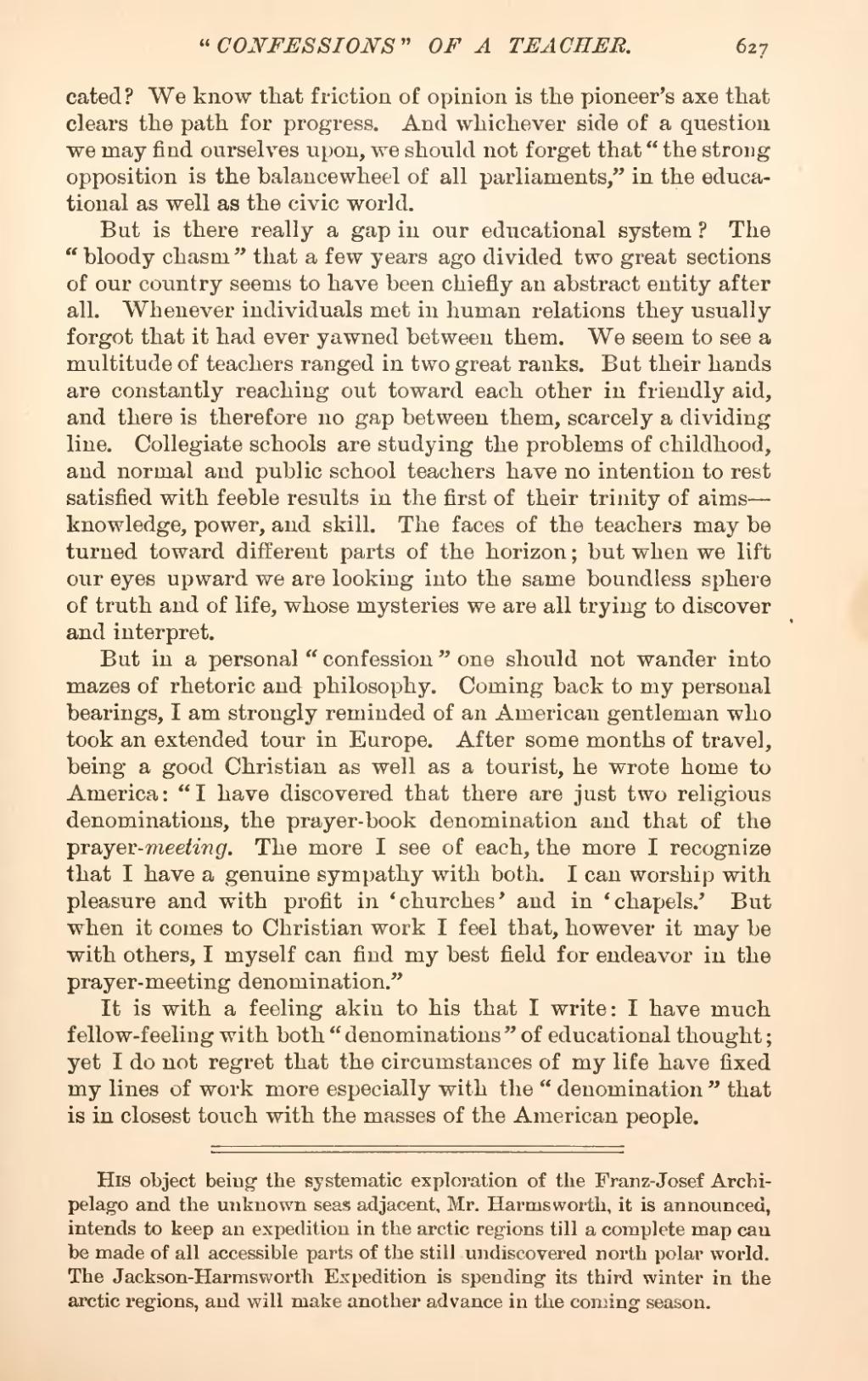cated? We know that friction of opinion is the pioneer's axe that clears the path for progress. And whichever side of a question we may find ourselves upon, we should not forget that "the strong opposition is the balance wheel of all parliaments," in the educational as well as the civic world.
But is there really a gap in our educational system? The "bloody chasm" that a few years ago divided two great sections of our country seems to have been chiefly an abstract entity after all. Whenever individuals met in human relations they usually forgot that it had ever yawned between them. We seem to see a multitude of teachers ranged in two great ranks. Bat their hands are constantly reaching out toward each other in friendly aid, and there is therefore no gap between them, scarcely a dividing line. Collegiate schools are studying the problems of childhood, and normal and public school teachers have no intention to rest satisfied with feeble results in the first of their trinity of aims—knowledge, power, and skill. The faces of the teachers may be turned toward different parts of the horizon; but when we lift our eyes upward we are looking into the same boundless sphere of truth and of life, whose mysteries we are all trying to discover and interpret.
But in a personal "confession" one should not wander into mazes of rhetoric and philosophy. Coming back to my personal bearings, I am strongly reminded of an American gentleman who took an extended tour in Europe. After some months of travel, being a good Christian as well as a tourist, he wrote home to America: "I have discovered that there are just two religious denominations, the prayer-book denomination and that of the prayer-meeting. The more I see of each, the more I recognize that I have a genuine sympathy with both. I can worship with pleasure and with profit in ‘churches’ and in ‘chapels.’ But when it comes to Christian work I feel that, however it may be with others, I myself can find my best field for endeavor in the prayer-meeting denomination."
It is with a feeling akin to his that I write: I have much fellow-feeling with both "denominations" of educational thought; yet I do not regret that the circumstances of my life have fixed my lines of work more especially with the "denomination" that is in closest touch with the masses of the American people.

